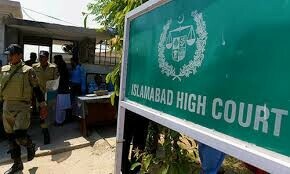The practice of tapping phones and intercepting calls and messages of those suspected of being engaged in criminal, terrorist or anti-state activities is certainly not new for Pakistan, but the government has now given it legal cover.
The need to promulgate SRO 1005(I)/2024 arose in the wake of Justice Babar Sattar’s scathing order in the audio leaks case, which had lifted the veil of secrecy from the state’s eavesdropping apparatus, revealing for the first time the existence of a Lawful Intercept Management System (LIMS) —named in true Orwellian tradition.
On May 5, Justice Sattar had framed a list of questions and posed them to the relevant stakeholders, asking them to explain — first and foremost — which law empowered the executive to record or surveil phone calls or telecommunication between private citizens.
“In the event that there is no legal sanction to tap phones, record telecommunication between citizens or undertake surveillance, which public authority or agency is to be held liable for such surveillance and enforcement over the rights of citizens to liberty and privacy and or release of illegally recorded private conversations to the public,” the judge had asked.
At one of the last hearings of this case, the additional attorney general was asked to confirm whether any rules had been framed for the purposes of Section 54 of the Telecom Act — as called for in Section 57(2)(ah) of the same law — to grant authority to any person(s) who intercepted/traced calls and messages.
The court order noted: “The learned [additional attorney general] was asked if the answer to the question of whether or not rules had been framed for purposes of section 54 of the Telecom Act was a matter of national security, he has at a loss for words.”
According to Islamabad Police Director Law Tahir Kazim, the newly promulgated SRO provided a legal framework for surveillance. The capital’s police is also one of the parties to the matter, as it has been seeking permission for monitoring of suspects after a crime had been committed.
Mr Kazim said that the court initially stopped telecom operators from sharing any data with police as well, but Justice Sattar later allowed it, since Section 94 of the criminal procedure code (CrPC) has a framework for surveillance of suspects.
The court was informed that the LIMS has been set up in compliance with licence requirements imposed by the Pakistan Telecommunication Authority (PTA), and that their surveillance centre allows a designated agency to initiate track-and-trace requests in relation to any mobile SIM or IMEI number.
This system is said to be automated and can pull up details of SMSes, call detail records and other metadata without any human intervention.
The court was also told that telecom licensees are under obligation to ensure that up to 2pc of their entire consumer base can be surveilled through the LIMS, which can monitor communications between up to 4m people countrywide, at one time.
In his order, Justice Sattar had observed that “this mass surveil-lance system that exists and includes the [LIMS] installed at the Surveillance Centre on the direction of PTA, prima facie, appears to have no legal backing.”
This is ostensibly why the government had to move the latest SRO.
Talking to Dawn, former advocate general Barrister Jahangir Khan Jadoon termed this move as being contradictory to individuals’ right to privacy, which is a fundamental right.
“How could a Grade 18 officer define national security, on the basis of which he has been allowed to breach the privacy of citizens,” he asked. He also questioned the accountability of the intelligence officers, asking who they would be answerable to.
He deplored that while the Telecom Act was promulgated in 1996, the federal government took almost three decades to devise a legal framework for it.
Echoing the concerns of the opposition, he said such an amendment could be used for political witch-hunts and victimisation, which would cut both ways.
For example, the Prevention of Electronic Crimes Act (Peca), passed under a PML-N government, was later turned against the same party when it fell out of favour with the corridors of power.
Published in Dawn, July 10th, 2024














































Dear visitor, the comments section is undergoing an overhaul and will return soon.